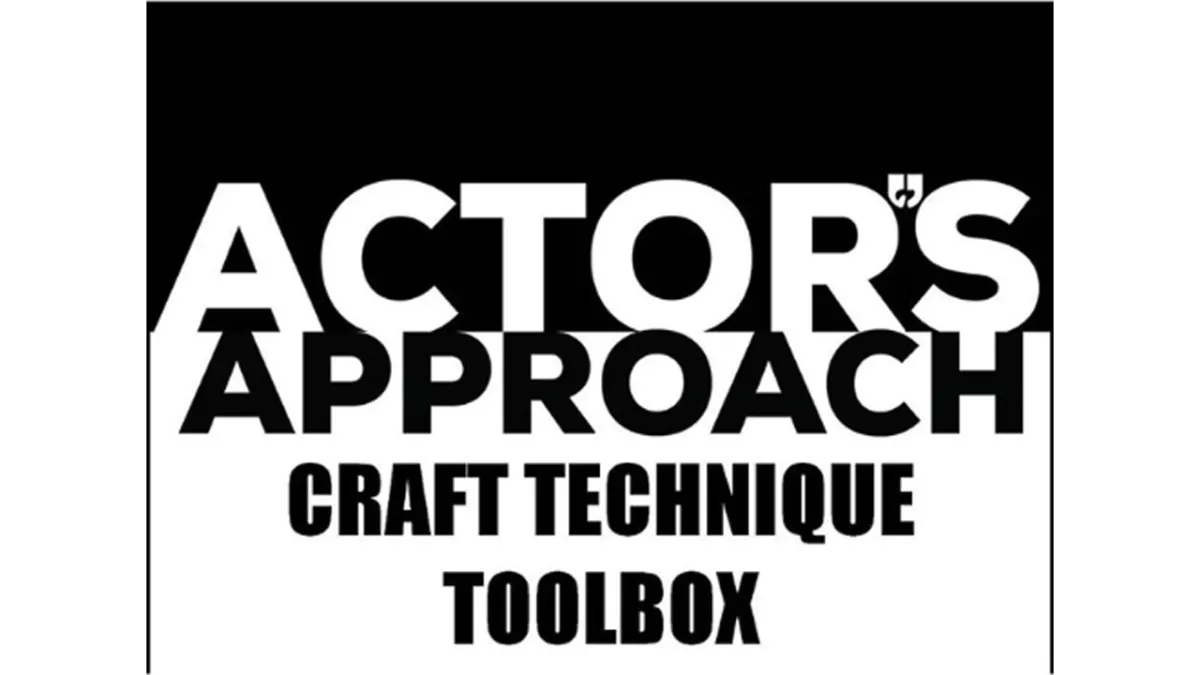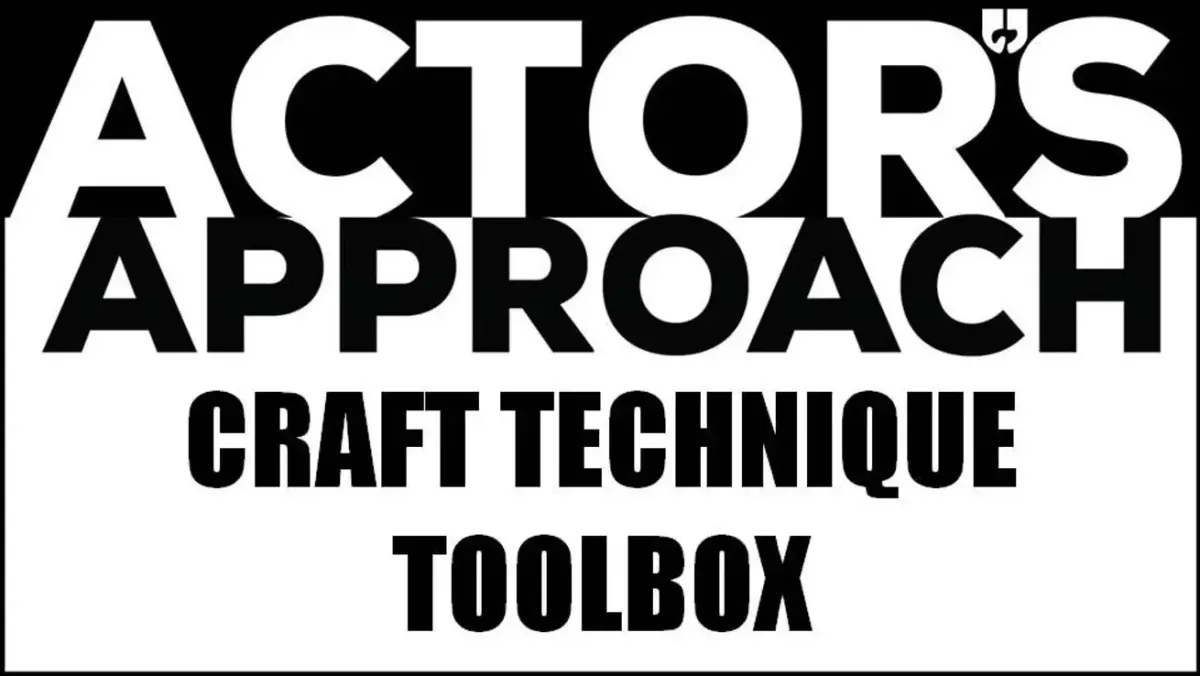The Actor's Approach Blog

The Great Debate
IMAGINATION VS PERSONAL LIFE EXPERIENCES
Here is the question at its core:
Should an actor use their personal life experiences within their work to fulfill the obligations of the text or should an actor NEVER use their personal life experiences, but rather rely 100% on their imagination to fulfill the obligations of the text?
Is there a middle ground where actors can use both approaches or are they mutually exclusive?
I understand why this debate has existed for decades, but frankly, I'm tired of the rhetoric and the dogma of it all. (Read my Blog "The Dogma of Acting Craft Techniques") My personal opinion is that every actor is an individual and it's no one's right to tell another actor what method, technique, approach, tool, principle, etc they should or should not use in their work. What works for some may never work for others. And it's nobody's business what your personal process is as long as it helps you do your job on stage or in front of the camera and that it's sustainable, reliable, dependable, safe (physically, emotionally and psychologically), healthy and productive for you, the cast and the production as a whole.
I know that the origins of this debate have been linked to Stanislavski, Michael Chekhov and certainly to the Group Theater that existed in America in the 1930s-1940s when Lee Strasberg, Harold Clurman, Cheryl Crawford, Sanford Meisner, Stella Adler, Bobby Lewis, Don Richardson and many other amazing actors were creating transformative theater that has shaped how we study and perform today. There are many other master teachers that belong on this list, but regardless of the names, the debate is the same.
There are stories of how much Sandy and Stella disagreed with Lee's position around the use of personal past experiences. Some of those stories are quite sad and I believe it was this debate that was at the core of the Group Theater's inevitable end. It saddens me deeply to think of all the plays we do not have in our lives because of this debate. I understand and agree with the arguments on both sides of the discussion. Both sides have merit and we actors should be open to exploring both sides.
There are some teachers and actors that support the concept of using your personal past experiences. We know this affectionately as Emotion Memory or Emotion Recall or Emotional Recall or Affective Memory of Effective Memory. You can see that there are so many ideas about this approach that it has many names. At it essence, the concept is simple. You find a personal past event in your life that parallels the circumstances in the script and, through your mastery over Sense Memory, you recreate the experience so that your memories surface, your senses respond and the emotions you felt during the event surface and then you get on stage and put your emotional life truthfully into the work, all the while staying present and truthfully working off the other actor, never getting so lost in your past that you mentally drift away.
So, what's so bad about that? Why would anyone disagree with this approach? What could go wrong? Why is this still an issue we discuss? Well, here are some arguments for why you should never use your past events.
It's not psychologically healthy to relive traumatic events from your past over and over and over. The constant re-experiencing of trauma can have a serious negative impact on your mental well-being.
Over time, your relationship to that past event changes, so as you grow and experience new life events, certain past events lose their power, so at some point, the well will run dry and you will have used up all possible benefit on stage from that life experience.
What happens if you just don't have a past experience that parallels the script's circumstances? Where would you look to fulfill the obligations if your life doesn't serve you well here?
The script writer does not know who you are and does not care about your personal life. Your job is not to impose your life experiences on top of the character, suffocating them under your baggage, but rather, your job is to look into the script and lift the character off the pages using the life of the character that the script writer created, honoring that character's life experiences, not your own.
I suppose I could go on with a few more examples of why some actors and teachers will say to never use your life experiences, but I think the point has been made. So what's the other side of the coin? What are the pros of using your personal past experiences, not just the cons?
Well, for one, if you have a life experience that truly does parallel the circumstances in the script, if will undoubtedly help you gain a deeper understand of the character's plight and it will give you insight into how the character might respond in the moment so you can bring choices to the rehearsal process and help shape what is ultimately shared on stage or screen because you have a tangible place to work from, not just some theoretical concept of what the moment should be about. You actually know what it's all about because you've lived it. What could be stronger than that?
Another powerful position about why you should always relate the script to your personal life is because you, the actor, are the instrument. A guitarist has a guitar. A pianist has a piano. Even a harmonica player has a harmonica. (I don't mean to disparage harmonica players. John Popper from Blues Traveler is one of my favorites) But the actor's instrument is their body, their mind, their soul, their senses, their memories, their energy, their experiences, etc. Where else can you go other than to your own instrument to help inform you while you develop your character. You are not a machine and the entirety of your life experiences is what makes you unique. It's what makes you, you, and if you reject using your past experiences to help fulfill the character's journey, because of some belief system, then you are consciously shutting the door to an area that you can tap into to do your work and any self-imposed obstacles may prevent you from doing your job. This seems counter-productive to the actor to put limitations and shackles on what's available to you.
But, I get it. I know that I've personally experienced times when I've used my father's death when he was 46 and I was 19 to fulfill a moment in a play and although I was emotionally full and did some darn good acting, I was mentally, physically and psychologically suffering each performance. It became too much for me to continue using that traumatic experience show after show. I needed to leverage another tool and still deliver the powerful gut-wrenching pain the character experienced in the moment. But if I never tapped into my personal past experience of losing my father, I would have never been able to fully understand, experience and empathize with the character's pain. It was only through my personal past experience that it all made sense to me. But then, I shifted from an actual past experience and explored using 100% imagination based methods and guess what, it worked like a charm. I went on guided daydreams, allowing my imagination to take me places my real life could never even fathom. And I reached emotional depths just as deep, but left the theater each night feeling healthy. Without both approaches working alongside each other to inform and support each other, i would have fallen short in my job.
Let's face it. There is no right or wrong here. There is not just one approach to doing the work. And if you trust your body, you can't go wrong because your body knows what to do long before your head figures it out.
So, please, let's continue our exploration of all techniques, and please, let's all just stop the argument that one approach is better than the other. We actors need to open our hearts and be willing to explore every approach that's available to us.
It is exactly with that in mind that I created The Actor's Approach Craft Technique Toolbox. And it's the exact reason that I did not label which teacher the techniques came from. This way, you can come to each craft tool with a clean slate, an open heart and a willingness to explore, learn and experience.
If you're not a member of the TOOLBOX yet, please consider JOINING THE TOOLBOX.
I hope this post has inspired you in some small way. I look forward to reading your comments.
Bye for now,
See you inside the Toolbox.
Email: [email protected]
Website: http://www.actorsapproach.com
Linktree: https://linktr.ee/actorsapproachcrafttoolbox
Join The Actor's Approach Toolbox Now!
45+ Hours Including Over 375 Videos Packed With Acting Craft, Techniques, Training And More.

Home | Explore The Toolbox | Blog | Podcast | Shop | Contact
Terms & Conditions | Privacy Policy | 2025 Actors Approach©

